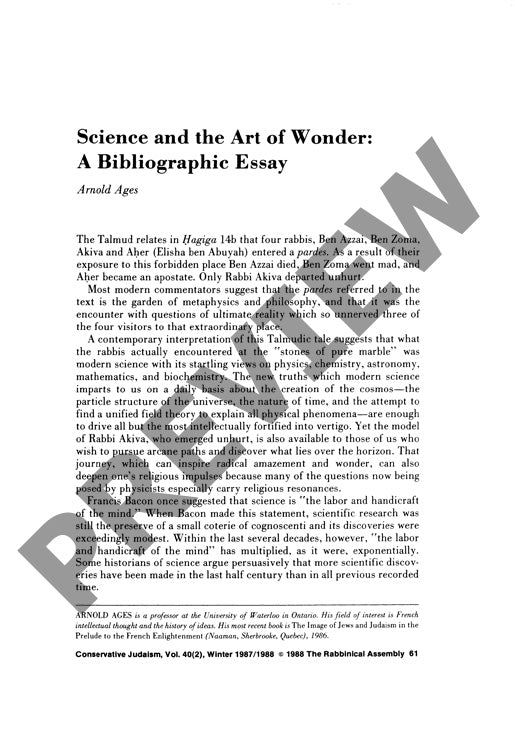Science and the Art of Wonder a Bibliogr
Couldn't load pickup availability
This bibliographic essay examines the contemporary explosion of popular science literature and its potential for bridging the traditional gap between scientific and religious worldviews. Using the Talmudic allegory of four rabbis entering the pardes as a metaphorical framework, Ages analyzes how modern scientific discoveries, particularly in quantum mechanics and cosmology, carry profound religious resonances. The methodology involves a comprehensive survey of representative popular science publications from the 1980s, focusing primarily on physics and astronomy texts written for general audiences. Key findings reveal that quantum mechanics' observer-dependent reality and the scientific acceptance of universal origins through Big Bang theory offer unprecedented opportunities for science-religion dialogue. The essay highlights how concepts such as the anthropic principle, subatomic particle behavior, and creation theories parallel traditional theological doctrines, including creatio ex nihilo and human perfectibility. Ages concludes that the proliferation of accessible scientific literature enables broader public engagement with complex theoretical concepts, potentially inspiring "radical amazement and wonder" while deepening religious impulses. The work demonstrates that contemporary physics, rather than undermining religious thought, may actually provide scientific validation for fundamental theological principles, suggesting that the historical antagonism between science and religion can evolve into productive intellectual synthesis through careful examination of modern scientific discoveries and their metaphysical implications.

More Information
-
Physical Description
-
Publication Information
Published 1987-1988
ISBN
-
Publication Credits
Arnold Ages

